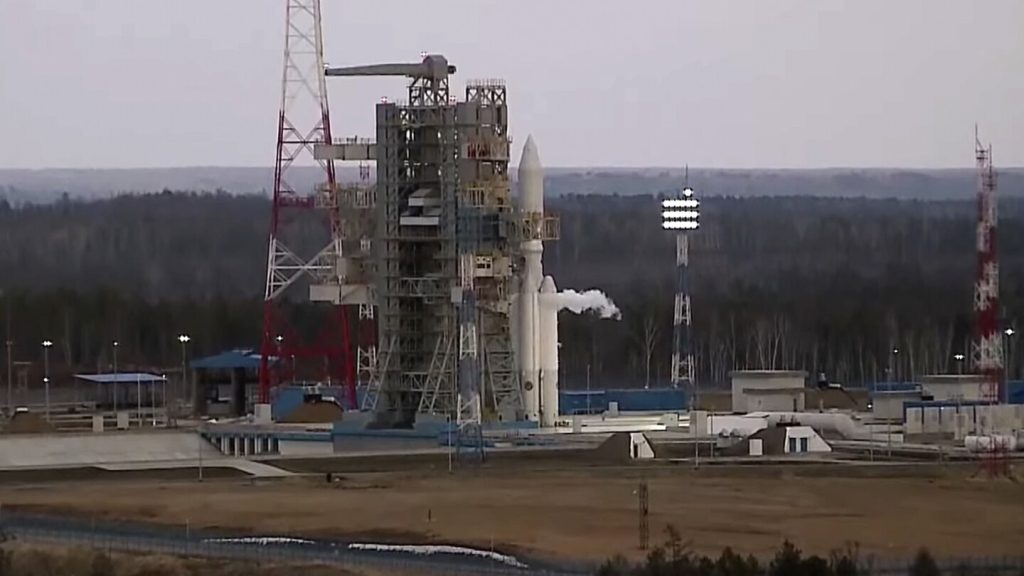The Russian space agency Roscosmos experienced a setback for the second consecutive day as they failed to test-launch a new heavy-lift rocket, the Angara-A5, from the Vostochny space complex in the Far East. The first attempt on Tuesday had to be canceled just two minutes before liftoff due to a failure in the pressurization system of the oxidizer tank. The second attempt on Wednesday was also aborted by the automatic safety system, detecting a flaw in the engine start control mechanism. Despite these setbacks, officials have scheduled another launch attempt for Thursday, hoping to finally get the rocket off the ground.
The Angara-A5 rocket is a heavy-lift version of the Angara family of rockets, designed to replace the Soviet-era Proton rockets. The previous three launches of the Angara-A5 were successfully conducted from the Plesetsk launchpad in northwestern Russia. Following the breakup of the Soviet Union in 1991, Russia leased the Baikonur Cosmodrome from Kazakhstan and has continued to use it for most of its space launches. The agreement with Kazakhstan allows Russia to lease Baikonur for $115 million annually until 2050. Despite reliance on Baikonur, Russian authorities have been developing Vostochny as the preferred facility for Angara launches, although the construction has been delayed and the spaceport has only been used minimally so far.
The Angara-A5 rocket is crucial for Russia’s future space exploration plans, including the prospective lunar research program. However, the development of the rocket has faced repeated delays and is years behind schedule. Similar to the Proton rockets it is intended to replace, the Angara-A5 is meant to launch intelligence and communication satellites into geostationary orbits. The failure of the recent launch attempts raises concerns about the progress of Russia’s space program and the reliability of the new rocket in fulfilling its intended purpose. Despite the setbacks, Russian officials remain determined to overcome the technical challenges and successfully launch the Angara-A5 rocket from the Vostochny space complex in the near future.
The difficulties faced by Roscosmos in launching the Angara-A5 rocket highlight the complexities and risks involved in space exploration and rocket technology. Delays and setbacks are not uncommon in the development and testing of new rockets, as the intricate systems and components must work seamlessly together to ensure a successful launch. The failure of the pressurization system and the engine start control mechanism point to the challenges in ensuring the reliability and safety of rocket launches, especially for heavy-lift vehicles like the Angara-A5. Despite the setbacks, the Russian space agency is committed to resolving the technical issues and conducting a successful launch to demonstrate the capabilities of the new rocket and advance Russia’s space exploration efforts.
As Russia continues to develop and enhance its space program, the successful launch of the Angara-A5 rocket will be a significant milestone in demonstrating the country’s capabilities in space exploration and satellite deployment. The new rocket is expected to play a key role in Russia’s future space missions, including lunar exploration and satellite launches. By overcoming the technical challenges and conducting a successful test flight, Roscosmos will demonstrate its ability to innovate and adapt in the competitive field of space exploration. Despite the setbacks in the recent launch attempts, Russian officials remain optimistic about the future of the Angara-A5 rocket and its contribution to advancing the country’s space program on an international scale.


